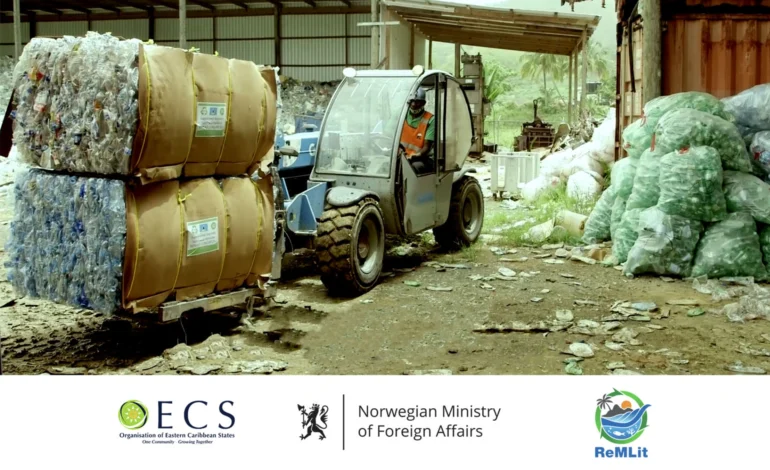
The increasing amount of waste generated is a problem for all Member States of the OECS. That problem is becoming more acute due to diminishing space in sanitary landfills. OECS countries are also vulnerable to marine litter impacts due to financial and institutional challenges in properly managing waste. However, the convenience which plastic affords and the prevalence with which single-use plastic products are mismanaged and discarded creates problems for solid waste management authorities, users of recreational beach facilities, and organisms and other life forms in the terrestrial and marine environment. and the OECS, Minister Peters was also selected by the WTO Director-General as a Minister-Facilitator for the thematic discussions on electronic commerce.
Given the challenges of finding additional space for waste disposal and concerns regarding marine pollution, the islands of the OECS must now consider what measures they can introduce to reduce waste generation, while also finding effective ways to manage their waste.
Among the critical outcomes for OECS Member States from the implementation of the project “Building Resilience in the Eastern Caribbean through Reduction in Marine Litter” (ReMLit) are new national and regional waste management policy frameworks, which will encourage countries to apply both the zero waste and circular economy principles with the view to reducing waste generated.
A recently concluded ReMLit investigation of waste management best practices for adoption across the OECS Member States, verified the urgent need for, and proposed regulatory frameworks, which, once adopted, will facilitate the management of waste such that plastics, organics and other valuable items that are in the waste stream, allowing these to be captured and brought back into circulation through recycling, reuse, composting, among other actions.
The Study noted that increased levels of waste generation are a global problem, but for Small Island Developing States like the OECS, it is not an issue that the islands can resolve individually. As such, coordination, collaboration and harmonized frameworks are vital, given the transboundary nature of marine pollution and the aspirations for the adoption of a circular economy in the region. The proposed policy frameworks are premised upon regional level leadership in ensuring the adoption of best practices at the national, regional, and international levels. The policy frameworks promote new modalities to respond in a manner that would lessen the financial burden and environmental costs anticipated from continued poor waste management.
Other key recommendations were made with respect to source separation, creating the enabling environment for increased private investment in waste management, public-private partnerships, and deposit-refund systems (DRS).
Major Revenue Sources
Table 6 below the current major funding sources of solid waste management agencies in the OECS ReMLit participating countries.Design of an OECS Incentive Programme For Reduction in Marine Litter .pdf631 KB
According to the Study, the best practice in reducing and recycling waste starts with separating waste at the source. This allows for the highest percentage of returns on recyclable items, as this practice ensures the collected waste is suitable, and, in the case of organics, is not contaminated. The high volume of plastics in the waste stream and the options available for recycling suggest the need to consider both export opportunities and the remanufacture of some items, and their potential to support more jobs within the Waste Value chain.







